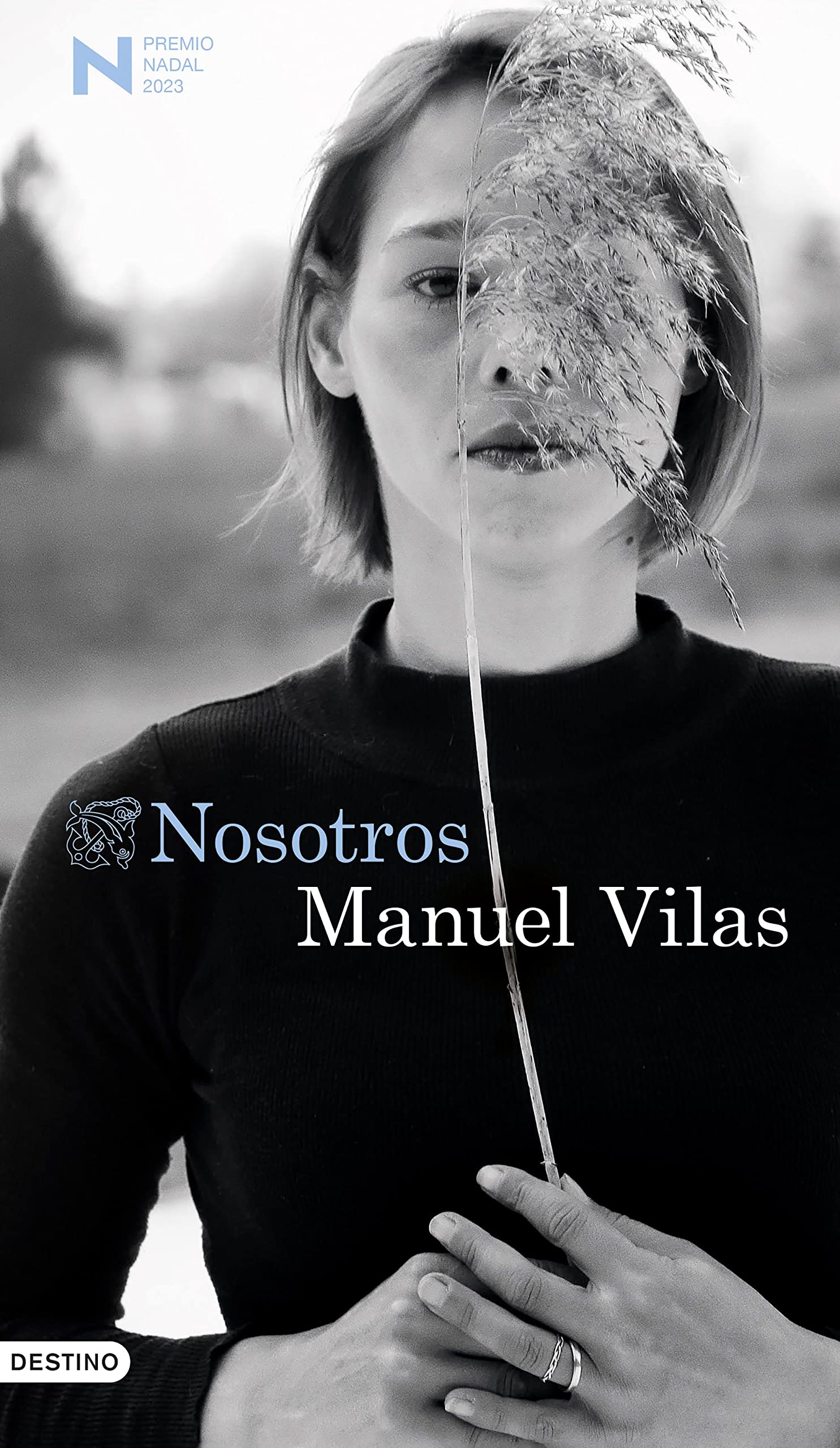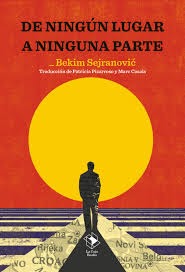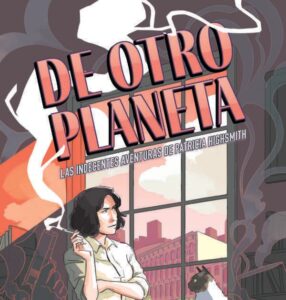
About the book
This is the story of a passionate and rebellious woman with a cause, whose overflowing love may be able to outwit death, time and oblivion.
A magnificent and surprising love story that reads like a kind of thriller existential.
AUTHOR’S NOTE
«There is the soul and the mysteries of the soul and there is love and the mysteries of love, and that is what my novel Us is about. And there is a woman called Irene, who is the absolute protagonist of this story.
The novel explores his intimate life, his mental life, his darkest and at the same time brightest fantasies. It is a descent into Irene’s soul. And this novel is also a blaze of light in the midst of the atavistic loneliness in which human beings live. I have discovered one thing after writing Us: love without pleasure, without true and convulsive and narcissistic pleasure, is not love but boredom.» MANUEL VILAS
«That’s what Marce used to tell him, that the world was full of imperfections, but that those imperfections didn’t reach those in love. Now she was alone, and that imperfection scared her. Because next to Marce nothing could discourage her.
Because Marce removed the evil from things, he removed the evil from the way so that she could feel protected, at ease with life.
“Love makes the ugliness and evil of the world invisible.”
Irene and Marcelo inhabited a timeless country called Us that protected them from the ugliness and hostility of the world. More than twenty years of marriage in which they made love every day with the same passion and dedication as the first time. A seamless passion in which every day was new, unique and unrepeatable. A world of mutual care and deep complicity that kept them on the margins of any external conflict. And the extraordinary connection that united the couple was even an obstacle to their social life due to the not entirely healthy envy and the discomfort they generated in their closest environment.
But when the relentless illness takes Marcelo away, Irene discovers that without that being who illuminated her days nothing makes sense. She does not even have all the money that her husband has left her, which she had earned with a lucrative quality furniture store, because furniture is the materialization of the love with which every couple dresses her home. And at fifty years old, the attractive and restless widow rebels against this absurd and meaningless destiny.
The famous sonnet by Francisco de Quevedo “Constant love, beyond death” that his mother recited to him and that they recited in unison with his Marce on the first date works as a kind of enigmatic spell. Irene does not admit her loss and with the indestructible force of her love she sets out to challenge death, time and oblivion.
She gets on a train heading to Malaga to meet the Mediterranean, that eternal and unfathomable sea whose contemplation calms her because in it she finds the equivalence of her passion, and from there she will undertake, on the back of a luxurious rental BMW, a lascivious road movie. in which he sets out in search of the impossible or perhaps the sublime that he has come to know and experience. It is about evoking his beloved Marcelo, recovering his present body by facing the skin of each new lover, whether man or woman, through an obsessive loving ritual with which he even contemplates his face in the brief seconds of the moment. orgasm.
«Everyone told her that they loved her, but she knew that those words were not said by that group of lovers, but by Marce, who took their bodies, and spoke through their mouths, and it was Marce’s power that turned one-night stands into declarations of deep love.”
And in the utopian construction of that We, traversed by absence in this case, an impossible variant of the great epic that every great love faces, Irene becomes hopelessly lost in the depths of her soul, as events follow one another. the enclaves of the Mediterranean coast: Cambrils, Aiguablava, Séte, Nice, Sardinia… Because little by little we will discover, in that portentous exercise of memory and invocation of the love of his life, in order to revive his beloved Marcelo for just an ephemeral moment of the present, that the borders between reality and fantasy begin to blur. And, above all, that her inexorable loneliness imposes on Irene her “severe law,” as the poet said, and tears her apart.
That is what Nuestros, the masterful new novel by Manuel Vilas (Barbastro, 1962), winner of the prestigious Nadal Prize 2023, is about. A work of exquisite craftsmanship, as moving as it is forceful, which takes its title from the famous bolero by the Cuban composer Pedro Junco performed by The Panchos. To a large extent melodramatic, like the immortal musical genre to which it pays tribute, Us is a novel that not only speaks of the enormous difficulty of building day by day that plural to which all passion is inevitably directed, but also proposes an exploration of the limits of the feeling of love crossed by the ineluctable. But it is at the same time an exploration full of surprises, with an unexpected final twist, which allows, as the author himself recognized in the Nadal Prize reception speech, to also read this novel as a kind of existential thriller.
In that sense, the work also proposes with subtle effectiveness a vindication of the great power of fiction as an essential prop of reality, as that which helps us live. An honest recognition of the fantasy with which human beings peer into the abysses of existence and the cliffs of intimacy. The same fantasy that protects us, even if only momentarily, from loneliness. In short, perhaps Manuel Vilas’s great bet is nothing more than a passionate defense of love novels, because it is love novels that allow us, when reading them, to put into practice and star in great love stories ourselves.
Poetry and art
Filled with omnipresent symbols such as the powerful Mediterranean or the ineluctable passage of time through luxurious Cartier or Patek Philppe wristwatches that punctuate the protagonist’s adventures, the novel also proposes a fierce defense of art and poetry not only as the most genuine instruments of love and passion, but also as the only weapons that humans have to combat the meanness, ugliness and cruelty of the world.
It is not in vain that Irene, although she largely lacks real talent, spends the years of her love relationship composing love poems and painting everyday scenes of life as a couple, as a way of living her love twice or of experiencing one love. in the second degree, perhaps a kind of love of love.
For his part, Marcelo is also no stranger to the aesthetic drive since it is in his blood. His father was a great friend of Federico Fellini and a great artist of film sets who worked side by side with the filmmaker in the famous Cinecittà studios. That same sensitivity and aesthetic passion is what Marcelo will dedicate to quality furniture, as the materialization of the love of every couple.
But above all, poetry is the great protagonist of this love novel. Not only because Manuel Vilas is also a great poet and lyrics permeate the deepest part of his prose; but also because the work is also presented in its structure as a kind of gloss or development and extensive commentary on Quevedo’s well-known sonnet “Constant love, beyond death.” And this without counting the verses of great poets such as Antonio Machado, Juan Ramón Jimenez, Jaime Salinas, Jorge Manrique, Paul Valéry and a long etcetera that masterfully punctuate the twists of the plot.
Source: https://algunoslibrosbuenos.com/nosotros-manuel-vilas


